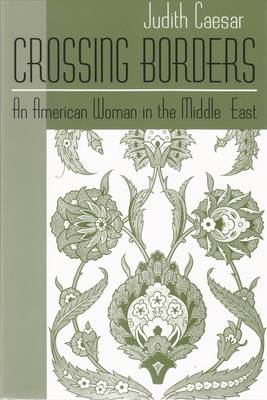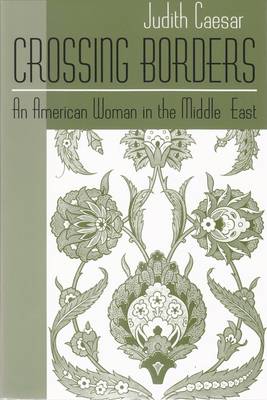
- Afhalen na 1 uur in een winkel met voorraad
- Gratis thuislevering in België vanaf € 30
- Ruim aanbod met 7 miljoen producten
- Afhalen na 1 uur in een winkel met voorraad
- Gratis thuislevering in België vanaf € 30
- Ruim aanbod met 7 miljoen producten
Omschrijving
In the five years that Judith Caesar taught literature in Saudi Arabia and Egypt during the 1980s, key events took place that changed the face of Middle Eastern politics. Seen through the eyes of many Westerners, the assassination of Anwar Sadat, the Israeli invasion of Lebanon, and the Intifada were incidents reflective of a seemingly volatile and aggressive culture. But Caesar saw these events from another perspective. Part memoir and part travelogue, Crossing Borders conveys simply and eloquently the voices of the people and the cultures Caesar came to know during her time in the Arab world. Some of her writings in this book have first appeared in publications such as the Christian Science Monitor.
In the tradition of the best writings on foreign places, Caesar's narrative is both an inward as well as an outward journey of discovery. In addition to the political reverberations taking place around her, she writes of the misconceptions generated by both the Saudi and the American press. In "All the News That's Fit to Print", Caesar notes wildly disparate interpretations of news stories when they are translated from one language to another. Caesar also demonstrates an openness in discovering the meaning inherent in the simplest daily tasks. She focuses on what is politically significant in what people do every day, such as drinking tea, shopping, and teaching.Crossing Borders will appeal to people interested in a non-dogmatic description of the Middle East, and to those who love good travel writing.
Specificaties
Betrokkenen
- Auteur(s):
- Uitgeverij:
Inhoud
- Aantal bladzijden:
- 186
- Taal:
- Engels
- Reeks:
Eigenschappen
- Productcode (EAN):
- 9780815628545
- Verschijningsdatum:
- 1/08/1999
- Uitvoering:
- Paperback
- Formaat:
- Trade paperback (VS)
- Afmetingen:
- 156 mm x 229 mm
- Gewicht:
- 276 g

Alleen bij Standaard Boekhandel
Beoordelingen
We publiceren alleen reviews die voldoen aan de voorwaarden voor reviews. Bekijk onze voorwaarden voor reviews.











